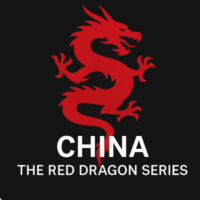 The Gathering Storm: Part 2 – China’s Economic Weakness Exposed: Why America Must Press On
The Gathering Storm: Part 2 – China’s Economic Weakness Exposed: Why America Must Press On
by Michael Stevnes (Word Count: 501 | Estimated Reading Time: 2.5 minutes)
The Wall Street Journal and Bloomberg are quietly reporting something extraordinary. Beijing has begun surveying its major companies with a simple but revealing question:
“What does America have that we can’t get anywhere else?”
It’s an astonishing moment. For decades, Americans have asked the inverse: What do we need from China to survive? Now the reality is shifting—and China’s vulnerabilities are coming into sharp focus.
As Bryan Wright wisely noted on The Wright Report, China remains deeply reliant on American goods, especially for strategic essentials: high-quality quartz, critical medicines, ethane for petrochemical production, and key engine parts for its aviation sector. Their needs are real—and growing.
The regime hasn’t formally released a list of vulnerabilities (and likely never will). But word is surfacing from U.S. manufacturers: when American goods land at Chinese ports, the once-mandated 125% tariffs are quietly waived. No public announcement. No televised confession.
Just Beijing’s usual method: deny in public, yield in private.
Meanwhile, Bloomberg and Maritime Executive report another growing problem:
China’s ports are backing up with idle ships—containers full of goods with no buyers, no momentum, and no way out. Trade volumes are falling, and in desperation, China has even begun sneaking shipments through South Korean intermediaries to dodge U.S. tariffs.
It’s a smuggling game of shadows—and it’s a sign of weakness, not strength.
Moreover, China’s recent decision to block rare earth metal exports to the U.S. is already backfiring.
According to Mining.com and Reuters, American and allied companies are rapidly accelerating domestic mining, refining, and recycling efforts. Projects in Texas, California, and Australia are moving fast to break China’s rare earth monopoly, cutting the Communist Party’s leverage at its root.
This moment proves something too many have forgotten:
Strategic tariffs, disciplined trade pressure, and economic independence are not relics—they are lifelines.
“It took forty years to lose industrial leadership.
It will take more than a hundred days to win it back.
This is war by other means—and national unity is not optional.”
The Red Dragon is bleeding beneath the polished surface.
Mountains of municipal debt, record-high youth unemployment, capital flight, and collapsing trust around the world have left its foundation cracked and unsteady.
Yet even now, some voices here at home—particularly within the Democratic Party—are calling to ease the pressure.
They warn of “hidden taxes’ and “recession risks,” as if short-term discomfort is somehow worse than giving up our future.
It took decades for America to lose its industrial strength.
It will take resolve—not retreat—to win it back.
If America presses forward now—strong, steady, unflinching—we can cripple Beijing’s ambitions without firing a shot.
But if we falter, distracted by cheap goods and false promises, we may awaken to a world reshaped forever by those who neither cherish liberty nor intend to share it.
The dragon bleeds.
Press on.
Some wounds heal. Lost nations do not.